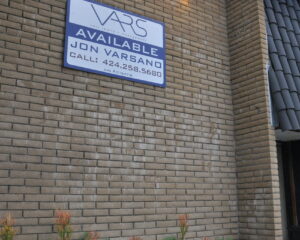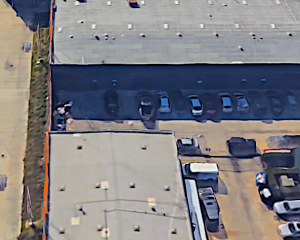Property Management and Commercial Leasing
COMMERCIAL and RESIDENTIAL PROPERTY MANAGER
Here are some of the specific duties a property manager must perform:
1. Establish the rental schedule that will bring the highest yield consistent with good economics.
2. Merchandise the space and collect the rent.
3. Create and supervise maintenance schedules and repairs.
4. If applicable, insure independent contractor license status and insurance coverage.
5. Set up payroll system for all employees.
6. Develop a tenant/resident relations policy.
7. Supervise employees and develop employee policies, including an Injury Prevention Plan.
8. Maintain proper records and make regular reports to the owner.
9. Qualify and investigate a prospective tenant’s credit.
10. Prepare and execute leases.
11. Obtain decorating specifications and secure estimates.
12. Hire, instruct, and maintain satisfactory personnel to staff the building(s).
13. Audit and pay bills.
14. Advertise and publicize vacancies through selected media and broker lists.
15. Recommend alterations and modernization as the market dictates.
16. Inspect vacant space frequently.
17. Keep abreast of the times and competitive market conditions.
18. Obtain and pay insurance premiums and taxes.
19. Be knowledgeable about and comply with applicable Federal, State and local laws.
COMMERCIAL PROPERTY LEASING
Leasing commercial space is one of the largest expenses incurred by new and expanding businesses, so it is important to do your due diligence. Here are some tips for negotiating a commercial lease for your small business.
Lease Agreement
Lease term and rent are your first negotiation points. It is generally recommended that small businesses negotiate one- to two-year leases with the option to renew. You will also want to factor in rent increases over the term and renewal options so you are not charged with an unexpected rent increase without warning.
Consider working with a broker to help you negotiate with the landlord. It is also important to consult a knowledgeable real estate lawyer; they can often recommend the right choice for you and protect your interests as you negotiate your lease through the broker.
Expenses
In addition to your monthly lease payment, find out what expenses you may incur beyond rent.
Commercial real estate landlords often incorporate extra expenses into the lease such as maintenance fees, upkeep for shared facilities (Common Area Maintenance or CAM), etc. Other expenses to consider are utilities. These charges are usually the responsibility of the tenant, so find out how these are measured. Are they individually metered or apportioned by square footage? Ask to see these “hidden fees” and policies as well as examples of costs that are typically incurred by tenants.
Maintenance and Repair
While residential leasing often places the burden of maintenance and upkeep on the shoulders of the landlord, commercial leases are different. Commercial leases vary regarding maintenance and repair – some stipulate that the tenant is responsible for all property upkeep and repairs while others specify that the tenant is responsible for systems like air conditioning, plumbing, etc.
Read the Lease
Be sure to read over your lease in detail and hire an attorney who specializes in commercial real estate to walk you through the clauses and fine print.
Protect Your Business
To protect your investment and long-term business interests, it is worth investigating and negotiating some potential add-on clauses to your lease. These might include:
- Sublease – This builds in some flexibility, allowing you to sublet your space to another business.
- Exclusivity clause – Prevents the landlord from leasing other spaces on the property to a direct competitor of yours.
- Co-tenancy – If the property’s anchor tenant closes business, a co-tenancy agreement can protect you from a potential loss of customers, allowing you to break the lease if the landlord does not replace the anchor tenant in a specified time period.
What if You Default?
Should you default on your lease payments, there are steps you can take during the lease negotiation process to protect yourself. Find out what the lease agreement states. Will you be locked out immediately? Will the landlord initiate eviction proceedings? Can you negotiate more time? Could you pay only the current month’s rent instead of the remaining amount owed on the lease?
-Courtesy of the SBA
Notice: Trying to access array offset on value of type bool in /home/r6aecuxpio8s/public_html/wp-content/themes/findeo/template-parts/content-single.php on line 30


